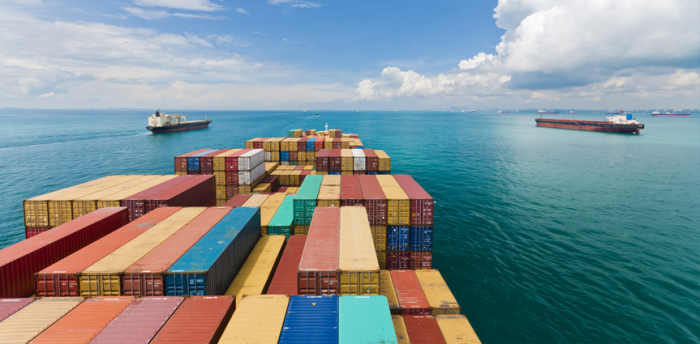Whereas free trade was once the central cause of progressive reformers seeking to combat entrenched interests on behalf of ordinary people, now it is the bête noire of both right-wing nationalists and the mainstream left. To understand why attitudes changed so radically, one must follow the money.
Few terms in economics are as ideologically loaded as “free trade.” Advocate it nowadays, and you are likely to be regarded as an apologist for plutocrats, financiers, and footloose corporations. Defend open economic borders, and you will be labeled naive or, worse, a stooge of the Communist Party of China who cares little about human rights or the fate of ordinary workers at home.
As with all caricatures, there is a grain of truth in the anti-trade stance. Growing trade did contribute to rising inequality and the erosion of the middle class in the United States and other advanced economies in recent decades. If free trade got a bad name, that is because globalization’s boosters ignored its downsides or acted as if nothing could be done about them. This blind spot empowered demagogues like Donald Trump to weaponize trade and demonize racial and ethnic minorities, immigrants, and economic rivals.
Nor is antipathy to trade the province only of right-wing populists. It also includes radical leftists, climate activists, food-safety advocates, human-rights campaigners, labor unions, consumer advocates, and anti-corporate groups. US President Joe Biden, too, has noticeably distanced himself from free trade. His administration believes that building a secure, green, equitable, and resilient US economy must take precedence over hyper-globalization. All progressives, it seems, believe that free trade stands in the way of social justice, however understood.
It wasn’t always this way. Free trade was the rallying cry of nineteenth-century political reformers, who saw it as a vehicle for defeating despotism, ending wars, and reducing crushing inequalities in wealth. As University of Exeter historian Marc-William Palen reminds us in Pax Economica: Left-Wing Visions of a Free Trade World, the era’s economic cosmopolitanism encapsulated progressive causes such as anti-militarism, anti-slavery, and anti-imperialism.
And it wasn’t just political liberals who supported free trade. US populists in the late nineteenth century staunchly opposed the gold standard, but they were also against import tariffs, which they thought benefited big business and harmed ordinary people. They pushed to replace tariffs with a more equitable progressive income tax. Then, during the early part of the twentieth century, many socialists viewed free trade, supported by supranational regulation, as the antidote to militarism, wealth gaps, and monopolies.
These conflicting views would seem to pose a conundrum. Does trade promote peace, freedom, and economic opportunity, or does it foster conflict, repression, and inequality? In fact, the enigma is more apparent than real. Either outcome – or anything in between – depends on whom trade empowers.
Nineteenth-century liberals and reformers were free traders because they thought protectionism served retrograde interests, including landed aristocrats, business monopolies, and warmongers. They believed economic nationalism went hand in hand with imperialism and aggression. Palen cites a 1919 essayby the economist Joseph Schumpeter, who depicted imperialism as a “monopolistic symptom of atavistic militarism and protectionism – an ailment that only democratic free-trade forces could cure.”
It was this vision that informed the post-World War II international trade system. The American architects of the International Trade Organization followed in the footsteps of Cordell Hull, President Franklin D. Roosevelt’s secretary of state, believing they were pursuing world peace through free trade. Hull was an economic cosmopolitan and a devotee of the nineteenth-century radical free-trade advocate Richard Cobden. Unlike previous regimes, the postwar order was meant to be a system of global rules that did away with bilateralism and imperial privileges. While the US Congress ultimately failed to ratify the ITO, some of its key principles – including multilateralism and non-discrimination – survived in the General Agreement on Tariffs and Trade (GATT), the precursor to the World Trade Organization.
But trade can be instrumentalized just as easily for authoritarian and militaristic ends. A particularly egregious example is Antebellum America, where free trade served to entrench slavery. During the drafting of the US Constitution in 1787, slave-owning Southerners ensured that the text would prohibit the taxation of exports. They well understood that free trade would ensure that plantation agriculture remained profitable and safeguard the system of slavery on which it was based. When the North defeated the South in the Civil War, slavery was abolished and free trade was replaced with protectionism, which suited Northern business interests better.
The situation under British imperialism was similar. After the repeal of the Corn Laws in 1846, the British government nominally turned its back on protectionism and led Europe in signing free-trade agreements. But in Africa, the Middle East, and Asia, free trade was imposed through the barrel of a gun whenever the British encountered weak potentates ruling over valuable commodities and markets.
The British fought the infamous Opium Wars of the mid-nineteenth century to force Chinese rulers to open their markets to British and other Western goods (opium chief among them), so that Western countries in turn could buy China’s tea, silk, and porcelain without draining their gold. The opium was grown in India, where, as Amitav Ghosh details in his new book, Smoke and Ashes, a British monopoly forced farmers to work under horrendous conditions that left long-term scars. Free trade served repression and war, and vice versa.
The post-WWII regime of multilateral free trade under American leadership would fare much better. Under GATT, commercial diplomacy replaced wars, and many non-Western countries – such as Japan, South Korea, Taiwan, and, most spectacularly, China – expanded their economies rapidly by leveraging global markets.
By the 1990s, however, the trade regime had become a victim of its own success. Large corporations and multinationals, empowered by the expansion of the global economy, increasingly drove trade negotiations. The environment, public health, human rights, economic security, and domestic equity took a back seat. International trade had yet again moved away from Cobden and Hull’s original vision, turning into a source of international discord instead of harmony.
The lesson of history is that turning trade into a positive force requires that we democratize it. That is the only way to ensure it serves the common good, rather than narrow interests – an important lesson to keep in mind as we reconstruct the world trade regime in the years ahead.
Dani Rodrik, Professor of International Political Economy at Harvard Kennedy School, is President of the International Economic Association and the author of Straight Talk on Trade: Ideas for a Sane World Economy (Princeton University Press, 2017).
More about:
















































